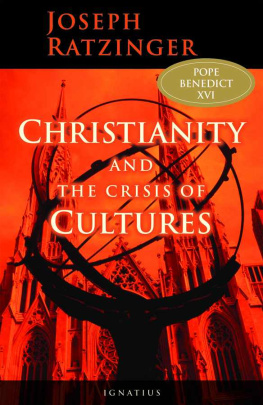Don't Ask Me To Believe
Where FaithFails - And Wins Through
by
ClareNonhebel
"A deeplymoving and profound insight
intocontemporary faith"
Smashwordsedition
Copyright 2014Clare Nonhebel
Cover byShirley Walker
Textpreparation Becci Walker
A BRIEFINTRODUCTION
A friendsseven-year-old boy, walking through the woods while on holiday withhis family, looked around him at the sun streaming through thetrees and said aloud, Okay, God, I know you are real. His familylooked at him, a bit surprised, and he added very firmly, And Illbelieve anything you like but dont ask me to believe in theresurrection all right?
So thank you,James, for providing the introduction to this book, because you mayhave voiced what a lot of people feel: yes, I do see signs of Godsexistence and yes, Im prepared to believe at least some of thethings that God seems to teach but... to believe in Jesus Christrising from death? Isnt that asking too much of any normal, solidand reasonable human being?
What Id liketo do in this book is to take a look at why people persist inbelieving this and why they dont. The division between thesegroups of people isnt simple. There are plenty of people likeJames, with a natural religious sense, who have no trouble inperceiving a creator behind creation, a higher intelligencesurpassing us in understanding, and who can even accept that a goodGod could send a loving son into a cold and lonely world and allowhim to experience all its agonies, before recalling him home to beconsoled. But they gag on the supposition that this son couldphysically return to life on earth after his death, or that thisresurrection has somehow saved the world.
Other people,who have never shown any signs of being religiously inclined andwhose lives are firmly earth-bound, may suddenly claim to have meta person called Jesus Christ who has changed all their prioritiesand their life and its clear to everyone around them that theyreally have been changed by something. Theyre as stunned and awedas a first-time lover and its as though the old platitudes thateveryone takes for granted have suddenly gained meaning and comealive for them. Theyll spout phrases that seem to come straightfrom the Bible even if theyve never read it as though thesewere new revelations delivered to them alone, and their behaviourchanges: they may give their money away, patch up old feuds, giveup a lucrative job to do menial service work, or they stop swearingor getting drunk or having a sex life ... They either wont stoptalking about what has changed their life, or else they becomethoughtful and withdrawn.
So whatshappened to them? How can they seriously claim that some minorfigure in history who died a bloody death a long time ago has metthem and changed their life?
It seems thatwhat were being asked to believe in is a transformation or comingalive of the essential person, taking place here and now in apresent-day individual, as the result of some kind of interventionby a person they firmly believe to be Jesus Christ. This is askingmore than faith in the resurrection of Jesus Christ as a symbolicmyth. Its even asking more than belief in Jesus Christ as a realfigure in history, who was seen alive by a number of witnessesafter being crucified and buried though in itself thats quite alot to believe. Listen to this:
There was thisman who, according to contemporary accounts, lived a physicallydemanding life, constantly preaching, healing, besieged by largecrowds, travelling long distances on foot in extreme heat, stayingup all night and hardly eating, and who according to his critics looked barely fifty when he was in his early thirties.
He upset justabout everybodys ideas and was finally arrested, tortured andtreated abusively and had his emaciated form hardly a picture ofhealth in the first place nailed to a cross, where he notsurprisingly died in a short space of time. The execution squad,not knowing much about his way of life, did find it surprising, soto make good and sure that he was really dead, they speared himthrough the side.
After that,because hed talked about rising to life, they secured a massivestone across the mouth of his burial cave, sealed it around theedges and posted shifts of four armed soldiers at a time to makesure that no one came and stole the body in order to claimmiraculous powers on his behalf. But at dawn the tomb was foundempty.
His followers who had been so scared that theyd all run away as soon as hedbeen arrested and most of whom had been hiding in a locked atticever since suddenly came out, speaking in foreign languagestheyd never been taught, not caring whether or not they werecaught, on fire with enthusiasm, and claiming theyd seen this manalive and had even eaten with him and that hed promised he wasstill with them and always would be. And they were so carried awayby this conviction that they began upsetting everyone as well, andtravelling not only around the country but around the world, tryingto tell perfect strangers about what had happened to them that hadtaken away their fear and their common sense and made it worththeir while losing their homes, careers, reputations, theirfamilies and their normality.
And it stillseems to be happening, doesnt it? All in the name of this sameminor historical figure, and not just as a ritualistic memorial ofsome holy hero in history but as a contemporary event taking placein the lives of present-day disciples. Other prophets of thattime, and at other times since, have drawn bigger crowds than JesusChrist, have been reported to have more astonishing powers and haveset up organizations more efficient and reputable than anyChristian church and have disappeared, either within a fewcenturies or a few years.
So why WHY? are some tens of thousands of people every year, 2,000 years afterany verifiable historical event, still being infected with thisreckless form of faith? Why, for them, has Jesus come alive andwhat has caused them to redefine their lives and feel so convincedthat the life theyve lived up till now isnt real or satisfyingand that theres some other way of life thats worth any sacrifice relationships, security, health and perfectly normalambitions?
And why are somany other people dubious about this phenomenon not only hardenedcynical people who dont believe anything real or good can happento anyone, but also some deeply religious people who have nohesitation in believing in a good God and a life that goes waybeyond the limits of this one?
I dont knowthe answers myself but Id like to. All I do know is that Ive meta lot of people in my life who have seemed genuine: some of themhave undoubtedly come alive with some inner conviction related toJesus Christ, and some have had reservations and doubts and havebeen honest enough to express them.
Ive met otherpeople whove been complacent about their faith and not interestedin hearing alternatives whether their faith is in Jesus, inscience, in personal heroes, political solutions or in their ownpowers and enlightenment and many more people whose religion iscynicism, who arent prepared to see any goodness in human beingsor to forgive any human failings. But youll have met plenty ofthose people yourself and they dont need more space to preachtheir philosophies.
What Id liketo do in this book is to tell you about my experience of Jesuscoming to life, and the times in my life he failed to come alive.Like most lives, mine has had its dark side as well as its flashesof insight and faith, so its not an inspiring account of someonewhos seen the light and lived happily ever after but if youreprepared to listen, Im prepared to be as honest as I know howabout the ups and downs of my own relationship with this personcalled Jesus Christ. There may be something in my life that you canidentify with, or you may decide that your experience has little incommon with mine.










